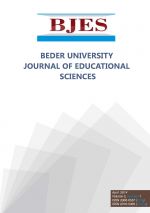
Adult Attachment Styles Of Mothers In Preschool
Abstract
The aim of this paper was to review previous research/literature that focused speciically on attachment styles of mothers in the effectiveness of preschool. In early childhood, children make transitions into new environments where they meet new and unfamiliar challenges in. So, they need to strong support for have a smooth transition. Especially as facilitator and encouraging mothering has come to important through this transition. Besides this, the power of home and school cooperation plays crucial role in success of preschool education. Thus, mothers are supposed to make a contribution create a supportive network. The most inluential theories about developmental and interpersonal relationships is attachment theory. Bowlby (1988, p.5) asserts that “Attachment theory is a way of conceptualizing the propensity of human beings to make strong affectional bonds to particular others and of explaining the many forms of emotional distress and personality disturbance, including anxiety, anger, depression, and emotional detachment, to which unwilling separation and loss give rise”. Many researches have shown that attachment inluences processes related to psychosocial functioning, life satisfaction, and well-being (e.g., Cassidy & Shaver, 2008). Secure mothers, are able to be consistent, reliable, and available to their infants and children, effectively attuning to and regulating both negative and positive states of arousal. Mothers with a preoccupied state of mind relative to attachment are inconsistent and unreliable, sometimes overattuning and hyperactivating in response to their infants’ negative arousal. Mothers with a dismissing state of
mind exhibit a restricted range of emotional expressiveness and a tendency to withdraw from interactions involving negative affect. Preoccupied mothers are those whose own internal working models do not support organized caregiving. In this context this study emphasizes on studies that have examined speciic components
(e.g., parent involvement in preschool and communication) on mothers role in preschool education. We also provide general conclusions and suggestions for future research.
Keywords
Styles; Mothers; Preschool
Authors
Seda Ata & Berrin Akman
Download Article

This work is licensed under a Creative Commons Attribution 4.0 International License.
Warning: mysql_free_result() expects parameter 1 to be resource, null given in /var/www/journals/bjes.beder.edu.al/article.php on line 45